The news earlier this year that the Labor government in Victoria will use schools to promote a ‘Yes’ case for the Voice to Parliament should not surprise. Neither should it surprise that some Australian school students, instead of saluting the Australian flag and taking the oath of allegiance, are told to memorise the Uluru Statement from the Heart.
There is nothing new or unusual about schools being used as vehicles to indoctrinate students with neo-Marxist-inspired cultural-left ideology. It’s been happening over the last 30 to 40 years. As I wrote in Why our schools are failing (2004), instead of viewing education as something objective and impartial, Australian schools have been pressured to adopt ‘an ideologically driven approach that defines education as an instrument to radically change society and turn students into politically correct, new-age warriors’.
While the expression ‘the long march through the institutions’ has become clichéd, it does not alter the fact the phrase, attributed to the German student radical Rudi Dutschke and before him to the Italian Marxist Antonio Gramsci, very much describes what has occurred in education since the late 1970s.
At a Fabian Society meeting held in Melbourne in 1983, Joan Kirner, who later became Victoria’s Minister for Education and then Premier, argued education had to be reshaped as ‘part of the socialist struggle for equality, participation, and social change, rather than an instrument of the capitalist system’. In the same speech, Kirner argued schools must be used as ‘a catalyst for system change rather than the legitimisation of system maintenance’.
Kirner’s socialist beliefs explain her mantra of ‘equality of outcomes’ instead of ‘equality of opportunity’ and her campaign to replace the then Higher School Certificate with the Victorian Certificate of Education. Given its academic focus and competitive end-of-year examinations where students are ranked in terms of performance, Kirner argued the HSC unfairly favoured privileged students attending wealthy non-government schools.
The Australian Education Union (previously named the Australian Teachers Federation) has, over the last 40 years, argued that Australian society is riven with inequality and injustice and that teachers, in the words of a teacher training resource popular at the time, must decide whose side they are on.
The union’s 1985 curriculum policy paper condemns Australian society for its ‘pronounced inequality in the distribution of social, economic, cultural and political resources and power between social groups, which restricts the life development of many’. Teachers were told the purpose of education was to reveal to students ‘the role of the economy, the sexual division of labour, the dominant culture and the education system in reproducing inequality’.
In order to improve equity and overcome disadvantage, the Australian Education Union has consistently spoken against Year 12 certificates, standardised tests like the National Assessment Program Literacy and Numeracy (NAPLAN), and what is described as the competitive, academic curriculum. This curriculum is apparently guilty of reinforcing capitalist hierarchies and disadvantaging at-risk, low socio-economic status (SES) students.
The Union’s 1998 curriculum policy paper states:
‘Reliance on competition is a primary cause of inequalities of educational outcome because students from certain social groups are advantaged by competitive selection methods. Competitive selection also sets students against each other rather than encouraging co-operative learning methods.’
Once again, the primary target are Catholic and Independent schools that generally achieve the strongest academic results as measured by the Year 12 Australian Tertiary Entrance Rank (ATAR).
Other examples illustrating the wider cultural-left’s ideology and opposition to the belief education should be impartial and unbiased include denouncing the Howard government’s involvement in the Iraqi war and suggesting students are entitled to strike in protest; arguing it’s okay for students to wag school to attend climate change demonstrations; telling teachers they must embrace a neo-Marxist inspired LGBTQ+ agenda, and arguing non-government schools should not be funded.
Given the AEU’s history of cultural-left activism, it should not surprise that the teacher union is a strong supporter of the Indigenous Voice to Parliament. In its submission to the ‘Indigenous Voice Co-Design process’ the union argues:
‘The AEU strongly supports The Uluru Statement and Voice. Treaty. Truth. Specifically, the AEU wishes to emphasise the importance of Truth-telling in schools through and in the curriculum and in the Australian Professional Standards for Teachers.’
As I detail in the chapter on school education in Cancel Culture And The Left’s Long March, subject associations have also been instrumental in radically reshaping the curriculum and what happens in the classroom. Some of these groups also oppose standardised tests like NAPLAN (in relation to literacy) on the basis such tests stifle creativity by privileging correct grammar, spelling, punctuation, and standardised English instead of the language students bring to the classroom.
Drawing on the work of the Brazilian Marxist educator Paulo Freire, who toured Australia in 1974, and the concept of critical literacy, one teaching association argues that the purpose of teaching English is to liberate and empower students by enabling them to critique texts and to discover how language is employed to reinforce what Louis Althusser terms capitalist society’s ideological state apparatus.
In an editorial in the 2004 edition of English in Australia published by the AATE, it is argued that the re-election of the Howard-led government demonstrated teachers had failed to properly teach critical literacy and, as a result, they had to redouble their efforts as so many young people had voted the wrong way. ‘What does it mean for us and our ability to create a questioning, critical generation that those who brought us balaclava-clad security guards, Alsatians, and Patrick’s Stevedoring could declare themselves the representatives of the workers and be supported by the electorate?’
Critical literacy and a rainbow alliance of cultural-left theories including postmodernism, deconstructionism, radical feminist gender, and post-colonial theories have also had a profound impact on how literature is taught in the English classroom. Australia contains teaching associations that condemn the concept of a literary canon involving those enduring works that are well crafted and have something profound to say about the human condition. Instead of acknowledging the moral, emotional, and aesthetic value of literature students are made to deconstruct texts in terms of power relationships and how the voices of marginalised groups, including women, people of colour, and LGBQ+ people, are ignored and silenced.
Two further examples of the way English teaching has been radically redefined are Volume 53, No 2, 2018 edition of English in Australia and a recent state conference. The edition of English in Australia tells teachers, as a result of the plebiscite to approve same-sex marriage being successful, English teachers must forsake literature that perpetuates the ‘normalisation of heterosexuality’ and cis-gendered relationships.
Instead, teachers are told to choose literature celebrating and normalising LGBTQ+ relationships on the basis, as there are some in the community opposed to same-sex marriage, teachers should: ‘Make visible positive representations of diverse genders and sexualities. The inclusion of such characters in queer literature for young people makes it possible for such identities to be visible inside the school gates, in school libraries, and in classrooms.’ Ignored are the beliefs of the nearly 40 per cent of Australians who voted against same-sex marriage.
The second example of the English classroom being used to indoctrinate students is last year’s VATE state conference where, as detailed by Mark Lopez in the January/February 2023 edition of Quadrant Magazine, teachers were encouraged to ensure students are presented with a positive view about the Indigenous Voice to Parliament. The public might expect a conference of English teachers to instead focus on discussing the place of literacy and literature in the classroom…
The Australian Curriculum Studies Association (ACSA) is a peak professional body involving academics responsible for teacher training with its publication Going Public: Education policy and public education in Australia (1998) self-described as ‘an unashamedly partisan book’ and a ‘call to arms’ in response to the then Liberal/National government led by John Howard.
The book’s conclusion appears to suggest that any daring to question multiculturalism, the need for reconciliation, or the ever-increasing cost of social welfare should be condemned for promoting ‘deep-seated prejudices, hatreds, and fears that obviously lurk beneath the cosmopolitan veneer of Australian society’.
Instead of concerns about poor literacy being genuine, the authors argue government intervention is ‘motivated by a concern on the part of dominant cultural groups to organise and regulate the lives and learning of the disadvantaged and subaltern groups’.
In 2006, ACSA organised a national forum involving most of Australia’s progressive education establishment to address the question of how best to achieve ‘excellence and equity in student learning outcomes’. Once again, concerns expressed at the time regarding falling standards and a dumbed down curriculum were described by one speaker as a ‘conservative backlash’ while another described it as ‘a concerted media attack’.
A third speaker, after also questioning the legitimacy of complaints about falling standards, argued education in Australia was moving to a segregated system of schools with some students destined to receive ‘a basic education’ while other more privileged students were granted a ‘broad, liberal education’.
As to why education in Australia is dominated by cultural-left, Woke ideology one needs to examine the impact of cultural Marxism and the rainbow alliance or radical theories that have impacted on the academy and teacher training beginning in Germany in the early 1920s.
Drawing on Antonio Gramsci’s concept of capitalist hegemony, instead of focusing on the modes and means of production, activists argued the most effective way to overthrow the status quo and achieve the socialist utopia was to infiltrate and take control of society’s institutions including universities, schools, the media, family and the church.
As noted by Michael Gove in Celsius 7/7, ‘The thinkers of the Frankfurt School revived Marxism as primarily a cultural rather than an economic movement. In place of anger against traditional capitalism, scorn was directed at the reining value systems of the West.’
The cultural-left’s domination of education can also be explained by the cultural revolution of the late 1960s and early 1970s, a time of student riots at the Sorbonne, anti-Vietnam demonstrations, Woodstock, and the youth counter-culture movement. Gove makes the point that many of those students radicalised at university during the cultural revolution went on to take up positions in universities, schools, the media, and political parties and organisations where they embarked on a radical push to change society.
The late 60s and early 70s also saw the emergence of a rainbow alliance of theories including deconstructionism, postmodernism, and extreme feminist, gender, and post-colonial theories. While not always in agreement, what all hold in common is a radical critique of capitalist society and Western Civilisation and the belief universities and schools are a primary target to achieve change.
Culture Counts describes this rainbow alliance as enforcing a ‘culture of repudiation’ responsible for spawning, ‘a massive literature of cultural subversion throughout the postwar period, from Foucault’s analysis of knowledge as the ideology of power to Richard Rorty’s truth-denying pragmatism, and from Barthes’s structuralist debunking of the classics to the ‘deconstructive virus’ released into the academic air by Jacques Derrida’.
Drawing largely on cultural Marxism and the emergence of theory, during the early to mid-70s what became known as ‘the new sociology of education’ movement began to replace the more liberal view of education dedicated to what TS Eliot describes as ‘the pursuit of truth, and in so far as men are capable of it, the attainment of wisdom’.
How schools and the curriculum are organised and structured, for example, instead of being inherently worthwhile and beneficial, are seen as social constructs designed to reinforce the status quo and favour the sons and daughters of capitalist elites. More extreme advocates for change argued if capitalism was to be overthrown, education had to be reimagined as a critical part of the ‘revolutionary, democratic socialist movement’.
The attack on the traditional academic curriculum in Australia, where competition and meritocracy prevail, draws heavily on the new sociology of education as does its argument Catholic and Independent schools do not deserve government funding. Underlying the Gonski review of school funding and the argument investing additional billions will improve standards and overcome disadvantage is also the belief society is structured hierarchically where wealthy, privileged students are guaranteed success while working-class, migrant, and Indigenous students are always destined to underachieve.
Whether it is neo-Marxist inspired Safe Schools gender fluidity program, students being encouraged to wag school and strike to stop global warming, or the way history enforces a black armband view, the reality is the cultural-left’s long march has succeeded beyond expectations.
The barbarians are no longer at the gates, they have taken the citadel. Of even greater concern, with very few exceptions, is that successive liberal governments and education ministers including Julie Bishop, Christopher Pyne, Dan Tehan, and Alan Tudge vacated the field and did little to engage in what John Howard terms the battle of ideas.
While much of the public commentary and political debate surrounding school education focuses on funding issues, complaints about falling standards and the most effective way to ensure teacher quality, as important is the way the cultural-left dominates what is taught and what happens in the classroom. Instead of being impartial and balanced on issues like global warming, the arrival of the First Fleet and European settlement, the benefits of Western Civilisation, and what constitutes human sexuality, students are given a jaundiced and one-sided view.
How the classroom is structured and how students are assessed has also fallen victim to progressive, Woke ideology. Instead of summative assessment, where 4/10 means fail, teachers rely of formative, diagnostic assessment based on ‘developmental continuums’ making it impossible to rank students in terms of performance or to measure progress against year level objective standards. Student self-esteem and self-agency prevail where teachers are ‘facilitators’ and ‘guides by the side’ while students are described as ‘knowledge navigators’ and ‘digital natives’.
Even though research proves memorisation and rote learning are vital in order to ensure automaticity (the ability to quickly recall facts, dates, events, and information stored in one’s long-term memory) schools have long condemned such practices as making students mindlessly parrot what has been taught.
When Ronald Reagan was President, a report titled A Nation at Risk: The Imperative for Educational Reform concluded ‘the educational foundations of our society are presently being eroded by a rising tide of mediocrity that threatens our very future as a Nation and a People… If an unfriendly foreign power had attempted to impose on America the mediocre educational performance that exists today, we might well have viewed it as an act of war’. The American report’s conclusion equally applies to Australia’s education system.
Dr Kevin Donnelly taught in secondary schools for 18 years and in 2014 he co-chaired the review of the Australian National Curriculum. Kevin edited Cancel Culture and the Left’s Long March and his webpage is kevindonnelly.com.au
Got something to add? Join the discussion and comment below.
Get 10 issues for just $10
Subscribe to The Spectator Australia today for the next 10 magazine issues, plus full online access, for just $10.

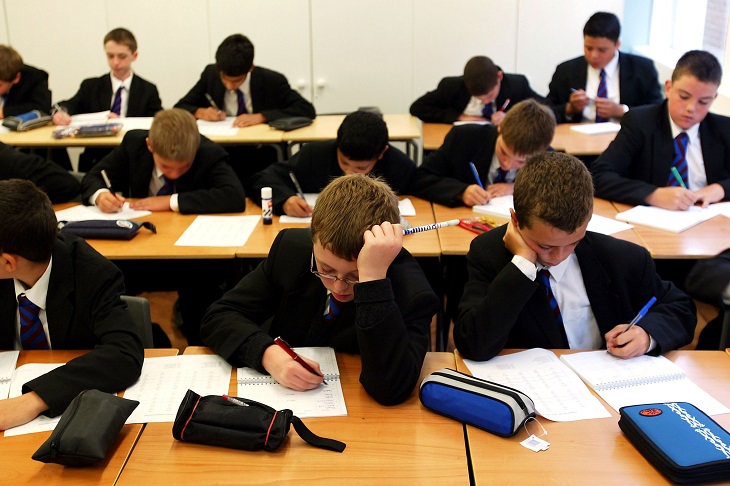
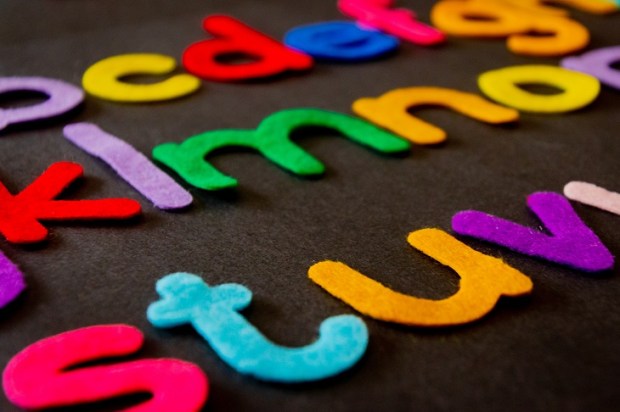

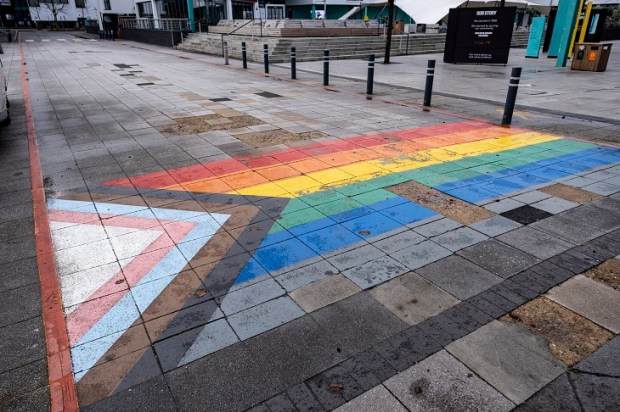
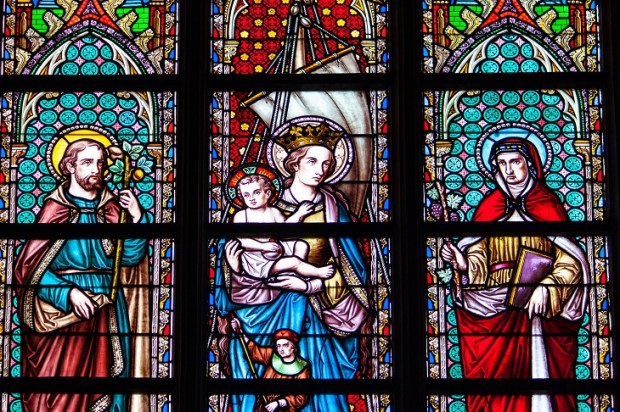
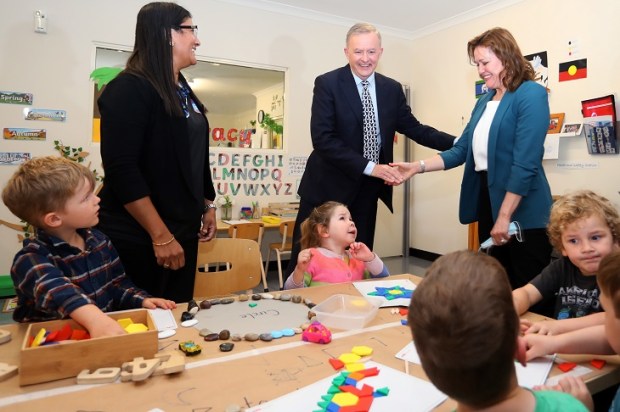



















Comments
Don't miss out
Join the conversation with other Spectator Australia readers. Subscribe to leave a comment.
SUBSCRIBEAlready a subscriber? Log in